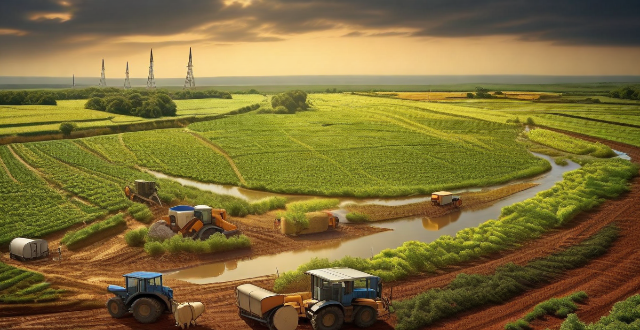Climate change has significant economic impacts, including direct effects on agriculture, natural disasters, and energy sector, as well as indirect effects on labor market, insurance industry, and investment decisions. To mitigate these impacts, actions such as investing in renewable energy and implementing sustainable practices are necessary.

The Economic Impacts of Climate Change
Climate change is a global phenomenon that has far-reaching consequences on various aspects of life, including the economy. The economic impacts of climate change are diverse and can be both direct and indirect. Here are some of the key economic impacts of climate change:
Direct Economic Impacts
Agriculture and Food Production
- Crop Yields: Changes in temperature and precipitation patterns can affect crop yields, leading to fluctuations in food prices and availability.
- Livestock Health: Extreme weather events can also impact livestock health and productivity.
Natural Disasters
- Damage to Infrastructure: Natural disasters such as hurricanes, floods, and wildfires can cause significant damage to infrastructure, leading to costly repairs and reconstruction efforts.
- Disruption of Business Operations: These events can also disrupt business operations, causing lost revenue and job losses.
Energy Sector
- Renewable Energy: The demand for renewable energy sources like solar and wind power is increasing due to concerns over fossil fuel emissions.
- Enermehl Perception: However, extreme weather events can also impact the reliability and effectiveness of these sources.
Indirect Economic Impacts
Labor Market
- Job Losses: As industries affected by climate change struggle, job losses may occur, particularly in sectors like agriculture or tourism.
- Health Impacts: Heat stress and other health issues related to climate change can also affect worker productivity and labor costs.
Insurance Industry
- Increased Claims: The insurance industry may face increased claims due to more frequent and severe natural disasters.
- Higher Premiums: This could lead to higher insurance premiums for individuals and businesses.
Investment Decisions
- Diversification: Investors may seek to diversify their portfolios by investing in companies that prioritize sustainability and resilience to climate change.
- Risk Management: Companies may also need to incorporate risk management strategies related to climate change into their investment decisions.
Mitigating Economic Impacts
To mitigate the economic impacts of climate change, governments, businesses, and individuals must take action. This includes investing in renewable energy sources, implementing sustainable practices, and supporting policies aimed at reducing greenhouse gas emissions. By doing so, we can work towards a more resilient and sustainable economy that is better equipped to handle the challenges posed by climate change.